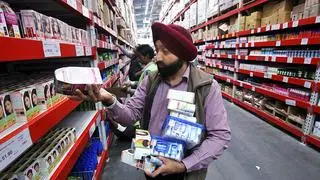More than half of the world’s rural population (56 per cent) does not have access to healthcare facilities compared with 22 per cent of the urban population, says a new ILO report, which found the most extreme disparities in the Asia-Pacific region, which includes India.
The stark neglect of the healthcare needs of the rural population, especially in developing countries, is also evident by the fact that only 23 per cent of health workers are deployed in these areas, where over 50 per cent of the world’s population lives, says the report “Global Evidence on Inequities in Rural Health Protection: New Data on Rural Deficits in Health Coverage for 174 Countries.”
According to the report, in India, 87.5 per cent of the population did not have legal health coverage in 2010, with 93.1 per cent in rural areas alone.
“The lack of legal coverage, insufficient numbers of health workers, inadequate funding, and high out of pocket (OOPs) have created life-threatening inequities in many countries,” said Xenia Scheil-Adlung, Health Policy Coordinator, ILO, in a statement.
The extent of impoverishing OOPs account for 46 per cent of total health expenditure in Asia, she said According to World Bank estimates, OOPs in India stood at 85.9 per cent in 2013.
Deficits in spending Also, the deficits in per capita health spending are twice as large in rural areas as compared to urban areas.
“The deficits observed result in unnecessary suffering and death, as reflected in rural maternal mortality rates that are 2.5 times higher than urban rates,” says the report.
In addition, the report found a global shortfall of about seven million health workers, such as midwives and nurses, in rural areas, compared with a lack of three million skilled staff in urban areas. ILO has identified the need for 41.1 health workers per 10,000
Social protection Pointing out the sharp rural-urban disparity in healthcare as one of the key reasons for the rural population being unable to contribute to urgently needed economic growth, wealth and development, the report called for universal social protection through national health services and national and social health insurance schemes.






Comments
Comments have to be in English, and in full sentences. They cannot be abusive or personal. Please abide by our community guidelines for posting your comments.
We have migrated to a new commenting platform. If you are already a registered user of TheHindu Businessline and logged in, you may continue to engage with our articles. If you do not have an account please register and login to post comments. Users can access their older comments by logging into their accounts on Vuukle.